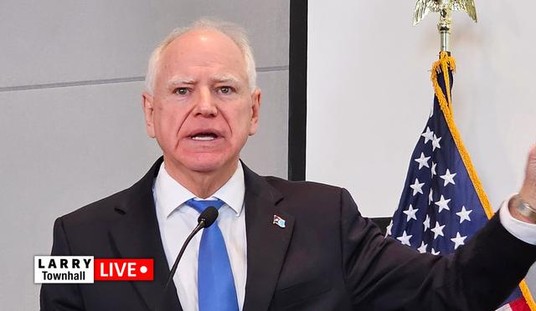Can we just take a moment here to indulge in that most sublime of human emotions in the political sphere: schadenfreude. That delight you get when you watch your political opponents (and in this case the enemies of your country) run about naked, baying at the moon, and rubbing themselves with feces.
Shot.
President Obama kept his promise to end the war in Iraq: pic.twitter.com/6kz7Fduh
— Barack Obama (@BarackObama) November 6, 2012
(please retweet)
Chaser.
From Secretary of Defense Ashton Carter’s testimony to the Senate Armed Services Committee:
When I last spoke to this committee about our counter-ISIL campaign and its nine lines of essential military and non-military effort, I made three things clear about the military aspects – first, that we will deliver ISIL a lasting defeat; second, that truly lasting success would require enabling capable, motivated local forces on the ground, recognizing that this will take time and new diplomatic energy; and, third, that our strategy’s execution can and must and will be strengthened.
All of that is still true. Our determination is unchanged, even as the situation continues to evolve, and we continue to adapt to execute our campaign more effectively. And today I’d like to elaborate on the third point and explain how we’re adapting our campaign to do more – reinforcing what works.
The changes we’re pursuing can be described by what I call the “three R’s” – Raqqa, Ramadi, and Raids.
…
The third and final “R” is raids, signaling that we won’t hold back from supporting capable partners in opportunistic attacks against ISIL, or conducting such missions directly, whether by strikes from the air or direct action on the ground. Last week’s rescue operation was led by Iraqi Kurdish forces, with U.S. advisers in support. One of those U.S. accompanying advisors, Master Sergeant Joshua Wheeler, heroically acted to ensure the overall success of the mission and lost his life in the process. The death of any service member is a tragedy, and as I told his family and teammates this weekend, I offer my condolences to Master Sergeant Wheeler’s loved ones for their loss. While our mission in Iraq is to train, advise, and assist our Iraqi partners, in situations such as that operation – where we have actionable intelligence and a capable partner force – we want to support our partners.
Pro-tip: If you actually have a military strategy, announcing what it is in public testimony is not the best way of carrying it out.
While the administration is portraying this as a rather benign and commonsense add-on to their already flailing counter-ISIS strategy, in reality it represents a substantial mission creep. To raid you need secure areas to plan and rehearse. To get secure areas you need troops dedicated to security. The security force needs to be supplied and maintained. The training areas become targets for enemy attacks which, in turn, necessitate more security. You can maintain a very lean force structure with advisers embedded with indigenous forces. Once you move into direct action you have to raise your profile.
What is upsetting about this is the below-the-radar attempt by the Obama administration to introduce combat forces back into Iraq and into Syria for the first time and the fact that they are doing it without any coherent strategy beyond leaving town in January 2017 without a full-blown regional war on their hands. From the New York Times:
The Pentagon continues to call the military campaign in Syria and Iraq an “advise and assist” mission, a characterization that was misleading when the campaign began and is now absurd. By incrementally increasing its combat role in a vast, complicated battleground, the United States is being sucked into a new Middle East war. Each step in that direction can only breed the desire to do more. Commanders will want to build on battlefield successes when things go their way, and they will be driven to retaliate when they don’t.
There is no question that containing the threat posed by the Islamic Statewill take a strong international response. The group, also known as ISIS and ISIL, remains firmly in control of large swaths of Iraq and Syria and has found allies in Afghanistan, Libya and Yemen.
But before contemplating a more forceful military plan, Congress and the administration must confront the fact that the current one, which includes airstrikes and support for select bands of rebels, lacks a legal framework and an attainable goal. The first problem could be fixed if the White House and congressional leaders were willing to work together to set clear limits on what the Pentagon is allowed to do. Preposterously, the military campaign that began more than a year ago, and has cost more than $4 billion, is still being waged under the authority of the congressional authorization passed to pursue the perpetrators of the Sept. 11 attacks.
We are either serious about fighting ISIS or we are not. Quite honestly, there are times when I think a multi-generational sectarian war in the Middle East based on the equally genocidal tendencies of Shiite and Sunni Muslims is as good an excuse for a foreign policy as I’ve heard. At least while they are decapitating one another they aren’t flying planes into buildings. But if we are serious then it will require the injection of tens of thousands of American troops into the region. Mind you, I don’t have a problem with that. A quarter million American soldiers occupying Germany for 50 years has done miracles for Western Europe and I think the same effort could be successful in the Middle East. But if we aren’t serious about pursuing this alleged fight against ISIS to its logical conclusion we have no business putting our best troops at needless risk in a losing venture.













Join the conversation as a VIP Member